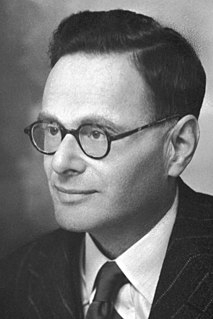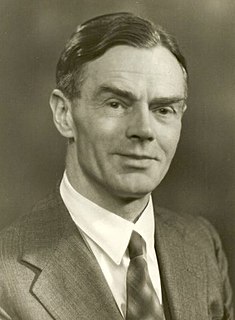Ein Zitat von Pierre Teilhard de Chardin
Dass es eine Evolution der einen oder anderen Art gibt, ist mittlerweile unter Wissenschaftlern allgemein anerkannt. Ob diese Entwicklung zielgerichtet ist oder nicht, ist eine andere Frage.
Themen zitieren
Verwandte Zitate
Alle Wissenschaftler sind sich einig, dass Evolution stattgefunden hat – dass alles Leben von einer gemeinsamen Abstammung abstammt, dass es ein Aussterben gegeben hat und dass neue Taxa, neue biologische Gruppen entstanden sind. Die Frage ist: Reicht die natürliche Selektion aus, um die Evolution zu erklären? Ist es der Treiber der Evolution?
Alle Wissenschaftler sind sich einig, dass Evolution stattgefunden hat – dass alles Leben von einer gemeinsamen Abstammung abstammt, dass es ein Aussterben gegeben hat und dass neue Taxa, neue biologische Gruppen entstanden sind. Die Frage ist: Reicht die natürliche Selektion aus, um die Evolution zu erklären? Ist es der Treiber der Evolution?
Wir müssen uns als Teil der Evolutionserzählung verstehen. Und die Evolution hört nie auf. Die Vorstellung, dass die menschliche Evolution irgendwann aufhörte und die „Geschichte“ die Oberhand gewann, ist absurd, obwohl sie unter verschiedenen Sozialwissenschaftlern und Humanisten weit verbreitet ist.
Spirituelle Liebe entsteht aus Trauer. . . . Denn die Menschen lieben einander nur dann mit spiritueller Liebe, wenn sie gemeinsam denselben Kummer erlitten haben, wenn sie lange Tage lang den steinigen Boden gepflügt haben, der unter dem gemeinsamen Joch eines gemeinsamen Kummers begraben liegt. Dann kennen sie einander und fühlen einander und fühlen miteinander in ihrer gemeinsamen Angst, und so haben sie Mitleid mit einander und lieben einander.
Ich möchte es jetzt wieder zusammensetzen, diesen künstlerischen Ausdruck, der religiöse Gefühle enthält. Ich möchte untersuchen: Was war der Ursprung? Was ist im menschlichen Geist passiert? Können wir den Moment der Entstehung des menschlichen Bewusstseins zurückverfolgen? Und warum erlangten nur Menschen das Bewusstsein, andere Tiere nicht? Also Evolution? Ich weiß nicht, ob ich an die Evolution glauben kann oder nicht. Vielleicht warten wir noch 100.000 Jahre, bis die Affen das Bewusstsein erlangen.
Die darwinistische Evolution vollzieht sich langsam und schrittweise, Schritt für Schritt. Eine solche Evolution kann die Mikroevolution erklären, nicht jedoch die Makroevolution. Wie hat sich zum Beispiel das Auge entwickelt? Die Idee hinter dem Darwinismus ist, dass sich Organismen anpassen und dass die Natur nur solche genetischen Veränderungen auswählt, bei denen es sich um Mutationen handelt, die einen guten Zweck für die Anpassung erfüllen. So gesehen kann sich das Auge nicht schrittweise entwickeln, da ein Tausendstel oder ein Millionstel eines Auges für das Überleben wertlos wäre. Im Allgemeinen schließt diese Frage den Darwinismus als adäquate Theorie für die Makroevolution aus.
Im Gegensatz zur Geschichte ist Evolution ein unbewusster Prozess. Eine andere und vielleicht bessere Formulierung wäre, zu sagen, dass die Evolution ein natürlicher Prozess ist, die Geschichte ein menschlicher ... Sofern wir den Menschen als Teil der Natur behandeln – zum Beispiel in einer biologischen Untersuchung der Evolution – -Wir behandeln ihn gerade nicht als historisches Wesen. Als sich historisch entwickelndes Wesen ist er der Natur sowohl als Erkenner als auch als Handelnder gegenübergestellt.
Ein weiterer merkwürdiger Aspekt der Evolutionstheorie ist, dass jeder glaubt, sie zu verstehen. Ich meine Philosophen, Sozialwissenschaftler und so weiter. Tatsächlich verstehen es nur sehr wenige Menschen so, wie es ist, selbst so, wie es war, als Darwin es ausdrückte, und noch weniger, wie wir es jetzt in der Biologie verstehen könnten.
Die Evolution wird von ihren Praktikern als mehr als bloße Wissenschaft propagiert. Die Evolution wird als Ideologie, als säkulare Religion verkündet – als vollwertige Alternative zum Christentum mit Sinn und Moral. Ich bin ein begeisterter Evolutionist und ehemaliger Christ, aber ich muss zugeben, dass die Literalisten mit dieser einen Beschwerde – und Herr Gish ist nur eine von vielen, die sie vorbringen – absolut Recht haben. Evolution ist eine Religion. Das galt für die Evolution am Anfang und gilt auch für die heutige Evolution.







































